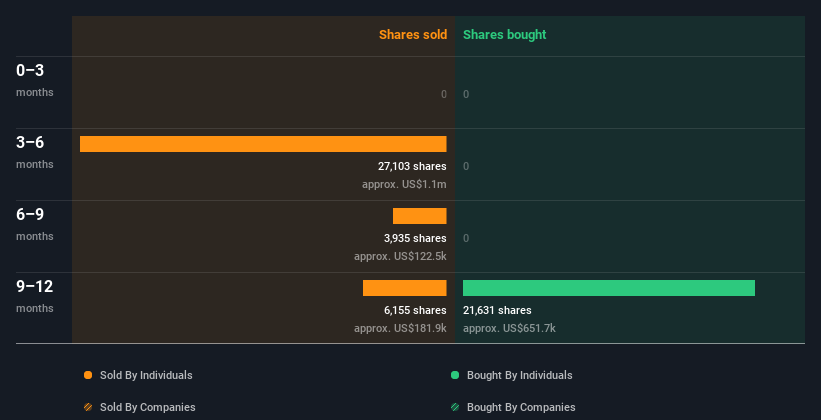- United States
- /
- Media
- /
- NYSE:WLY
Insiders At John Wiley & Sons Sold US$1.4m In Stock, Alluding To Potential Weakness

Quite a few John Wiley & Sons, Inc. (NYSE:WLY) insiders sold their shares over the past year, which may be a cause for concern. When analyzing insider transactions, it is usually more valuable to know whether insiders are buying versus knowing if they are selling, as the latter sends an ambiguous message. However, shareholders should take a deeper look if several insiders are selling stock over a specific time period.
While we would never suggest that investors should base their decisions solely on what the directors of a company have been doing, logic dictates you should pay some attention to whether insiders are buying or selling shares.
See our latest analysis for John Wiley & Sons
John Wiley & Sons Insider Transactions Over The Last Year
In the last twelve months, the biggest single purchase by an insider was when President Matthew Kissner bought US$502k worth of shares at a price of US$30.33 per share. We do like to see buying, but this purchase was made at well below the current price of US$48.08. Because it occurred at a lower valuation, it doesn't tell us much about whether insiders might find today's price attractive.
Over the last year, we can see that insiders have bought 21.63k shares worth US$654k. But they sold 37.19k shares for US$1.4m. All up, insiders sold more shares in John Wiley & Sons than they bought, over the last year. You can see a visual depiction of insider transactions (by companies and individuals) over the last 12 months, below. If you click on the chart, you can see all the individual transactions, including the share price, individual, and the date!

If you like to buy stocks that insiders are buying, rather than selling, then you might just love this free list of companies. (Hint: Most of them are flying under the radar).
Does John Wiley & Sons Boast High Insider Ownership?
For a common shareholder, it is worth checking how many shares are held by company insiders. Usually, the higher the insider ownership, the more likely it is that insiders will be incentivised to build the company for the long term. John Wiley & Sons insiders own about US$175m worth of shares (which is 6.7% of the company). Most shareholders would be happy to see this sort of insider ownership, since it suggests that management incentives are well aligned with other shareholders.
So What Do The John Wiley & Sons Insider Transactions Indicate?
It doesn't really mean much that no insider has traded John Wiley & Sons shares in the last quarter. While we feel good about high insider ownership of John Wiley & Sons, we can't say the same about the selling of shares. In addition to knowing about insider transactions going on, it's beneficial to identify the risks facing John Wiley & Sons. You'd be interested to know, that we found 2 warning signs for John Wiley & Sons and we suggest you have a look.
If you would prefer to check out another company -- one with potentially superior financials -- then do not miss this free list of interesting companies, that have HIGH return on equity and low debt.
For the purposes of this article, insiders are those individuals who report their transactions to the relevant regulatory body. We currently account for open market transactions and private dispositions of direct interests only, but not derivative transactions or indirect interests.
New: Manage All Your Stock Portfolios in One Place
We've created the ultimate portfolio companion for stock investors, and it's free.
• Connect an unlimited number of Portfolios and see your total in one currency
• Be alerted to new Warning Signs or Risks via email or mobile
• Track the Fair Value of your stocks
Have feedback on this article? Concerned about the content? Get in touch with us directly. Alternatively, email editorial-team (at) simplywallst.com.
This article by Simply Wall St is general in nature. We provide commentary based on historical data and analyst forecasts only using an unbiased methodology and our articles are not intended to be financial advice. It does not constitute a recommendation to buy or sell any stock, and does not take account of your objectives, or your financial situation. We aim to bring you long-term focused analysis driven by fundamental data. Note that our analysis may not factor in the latest price-sensitive company announcements or qualitative material. Simply Wall St has no position in any stocks mentioned.
About NYSE:WLY
Average dividend payer and slightly overvalued.


